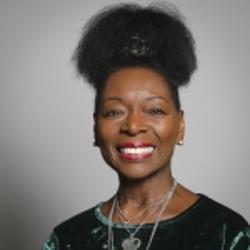Arts: Education
(asked on 2nd March 2023) - View SourceQuestion to the Department for Education:
To ask His Majesty's Government what steps they are taking to address the discrepancy in the (1) scale, and (2) investment, of arts education in (a) state schools, and (b) independent schools.
The department believes in a high-quality education for all pupils, and integral to this is cultural education, including teaching music and the wider arts. All state-funded schools are required to teach a broad and balanced curriculum, and this includes promoting pupils' cultural development.
The department will continue to spend around £115 million per annum in cultural education over three years, through our music, arts and heritage programmes. With the real terms per pupil increases to core school funding and the nearly £5 billion that has been announced for education recovery, schools will continue to have the flexibility to deliver a broad and ambitious curriculum and enrichment activities, including in arts and creative subjects.
The department published the Model Music Curriculum in 2021 and a refreshed National Plan for Music Education in 2022 to support teachers in delivering high-quality music education. The National Plan for Music Education was jointly published by the department and the Department for Culture, Media and Sport in June 2022, and sets out a vision for music education to 2030, to enable all children and young people to learn to sing, play an instrument and create music together, and have the opportunity to progress their musical interests and talents, including professionally.
The department will also publish a Cultural Education Plan in 2023, working with DCMS and Arts Council England. The Chair of the Expert Advisory Panel was announced last year and other panel members will be announced in due course.
The plan will further support young people who wish to pursue careers in the creative and cultural industries and will cover a range of wider arts subjects where appropriate, such as drama, dance and the wider performing arts. The department does not intend to produce detailed plans in other arts subjects, or to establish a Hub programme for arts subjects other than music. It is widely recognised that that there is a need for Music Hubs in addressing the unique challenges in supporting young people’s access to and progression in music.
With the significant impact of the COVID-19 pandemic on children’s education, the department’s priorities have been to focus on education recovery in the recent Spending Review. The government remains committed to the ambitions for a Cultural Education Plan and will give consideration to the future of the Arts Premium in due course.
The department does not collect information on spending in arts education at independent schools. The department does publish information on entries in arts qualifications at Key Stage 4 by type of school, including in GCSEs. In the 2021/22 academic year, the proportion of Key Stage 4 pupils taking at least one arts qualification in state-funded schools was 52.4%, while the equivalent proportion for independent schools was 42.3%.

